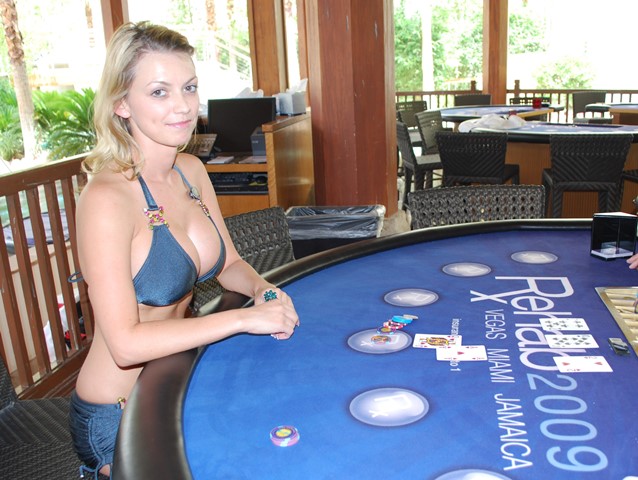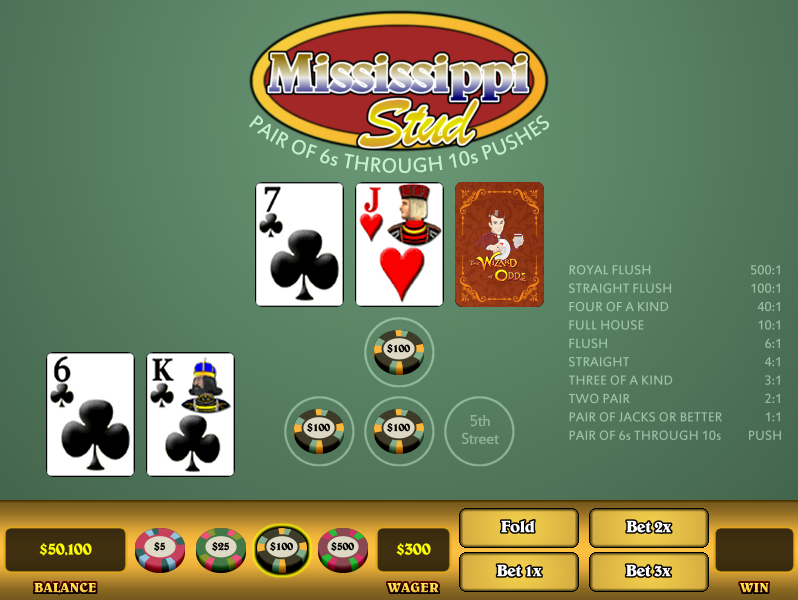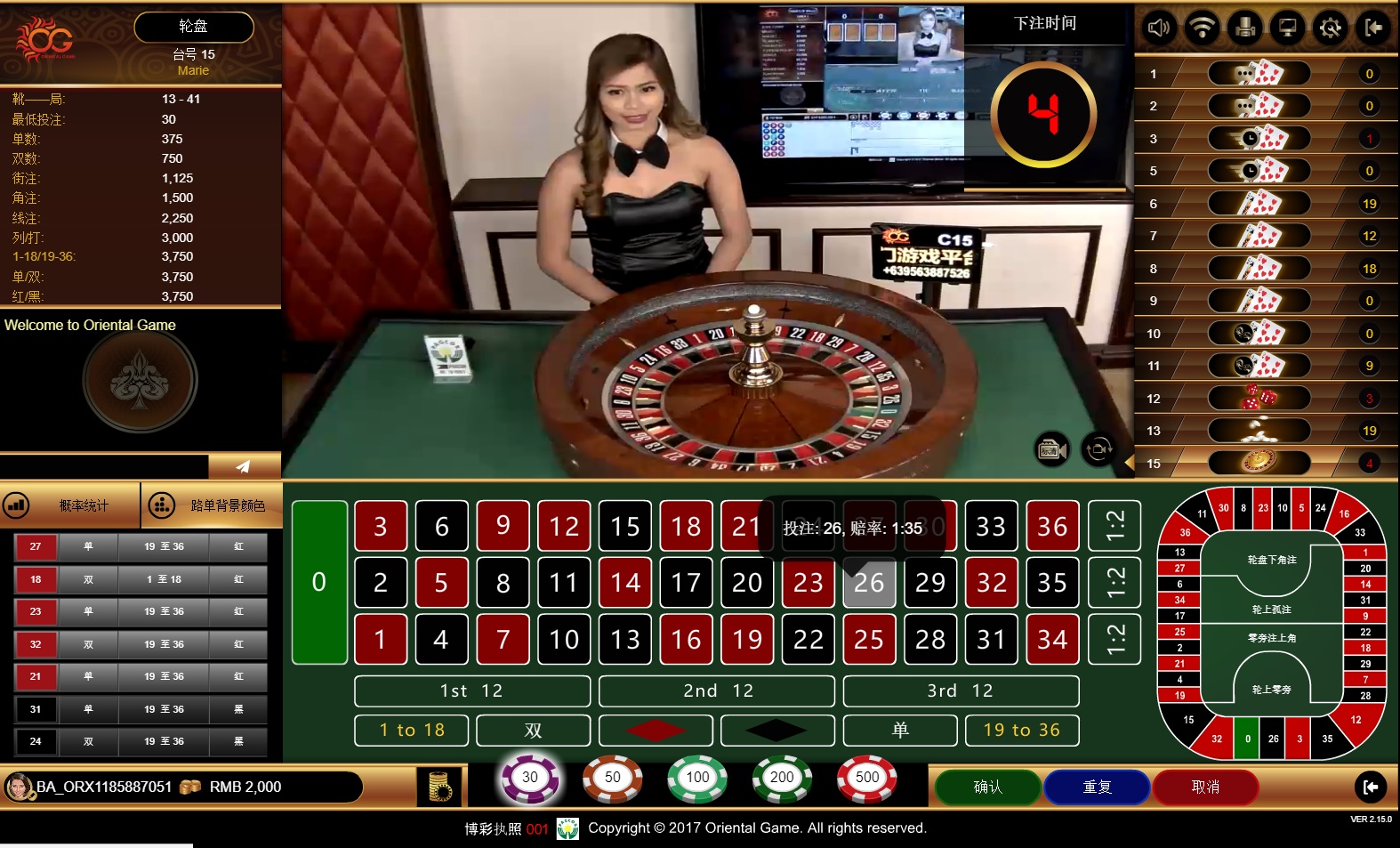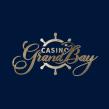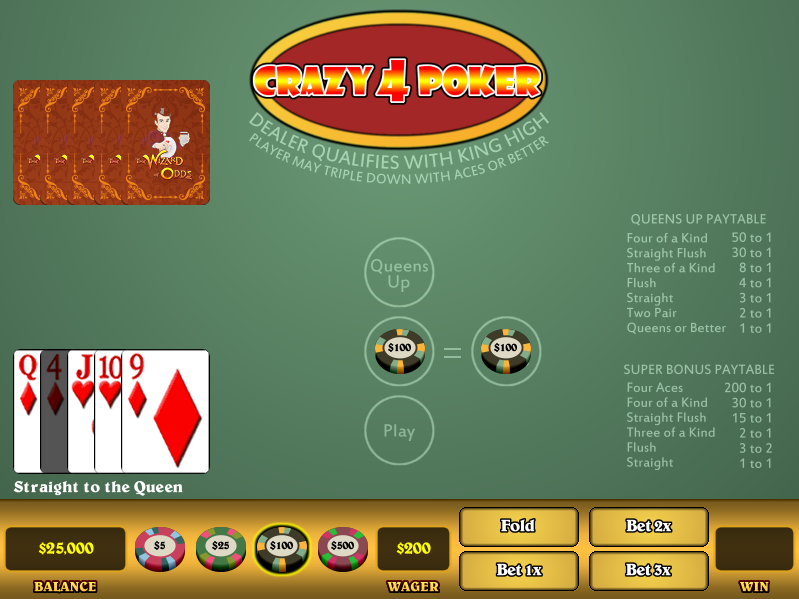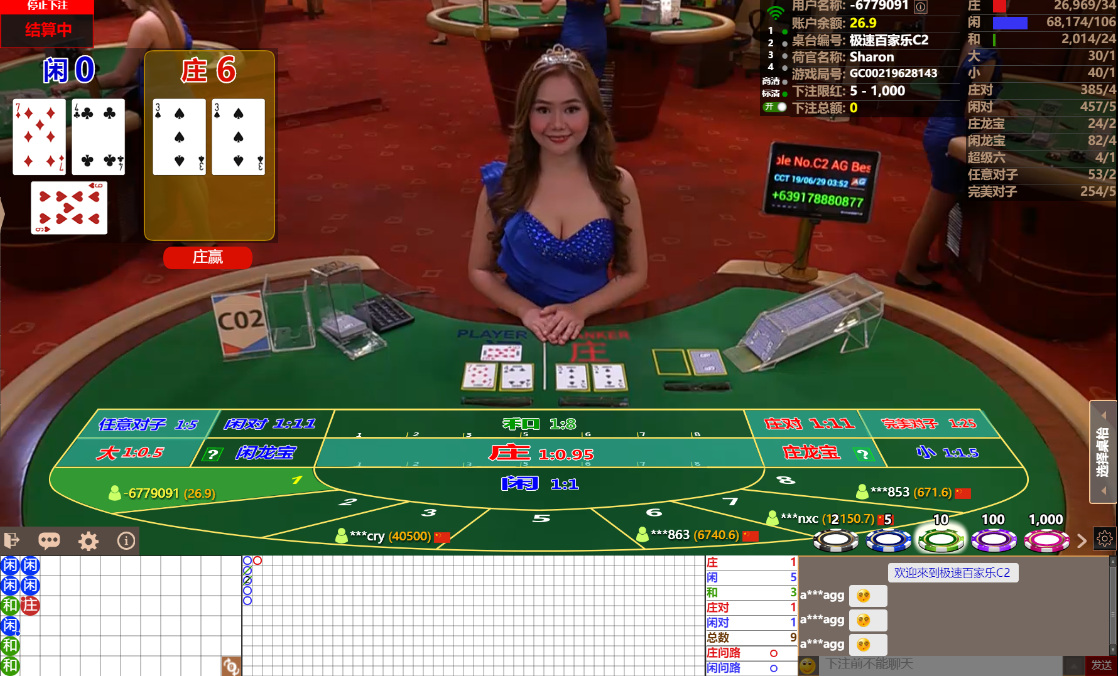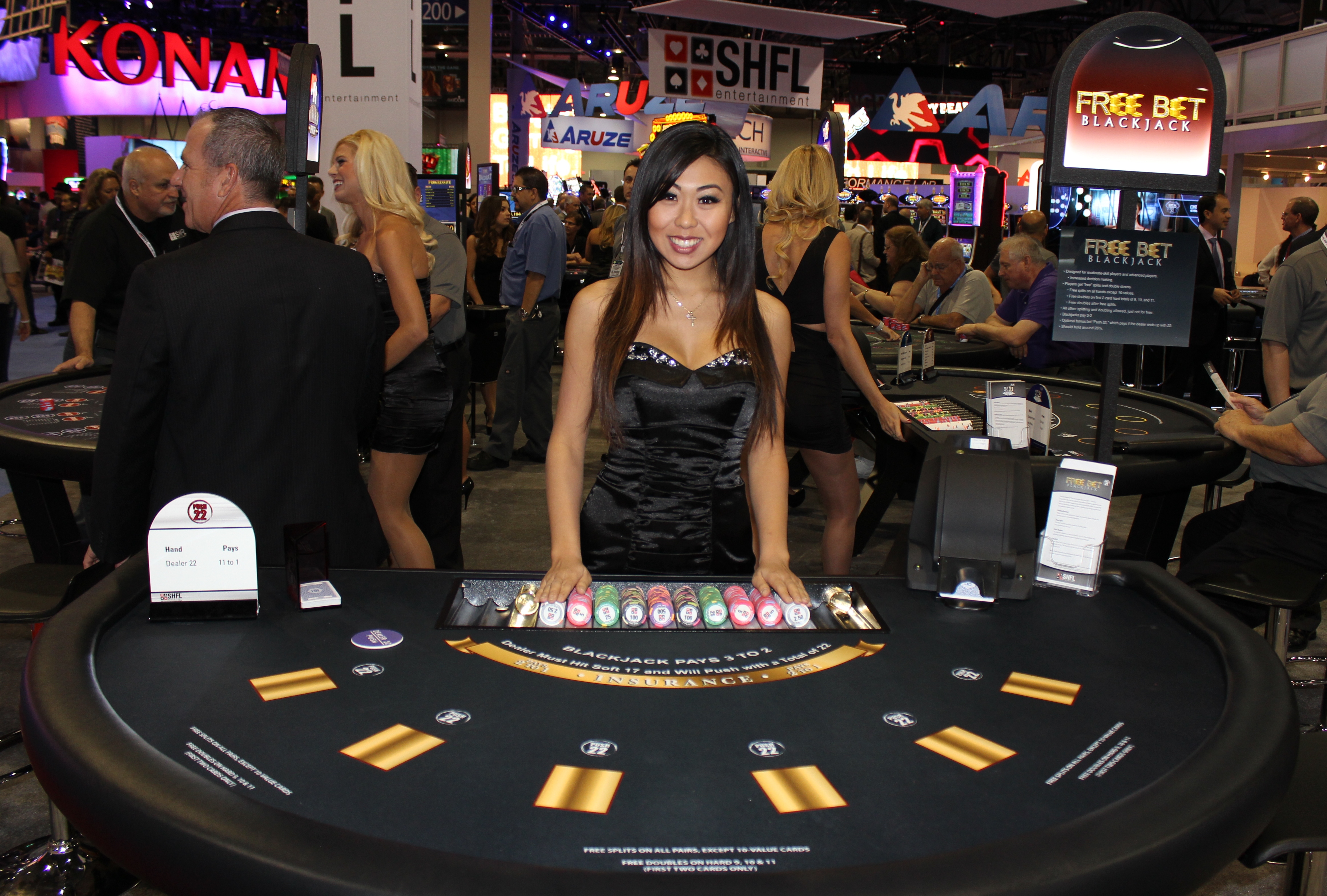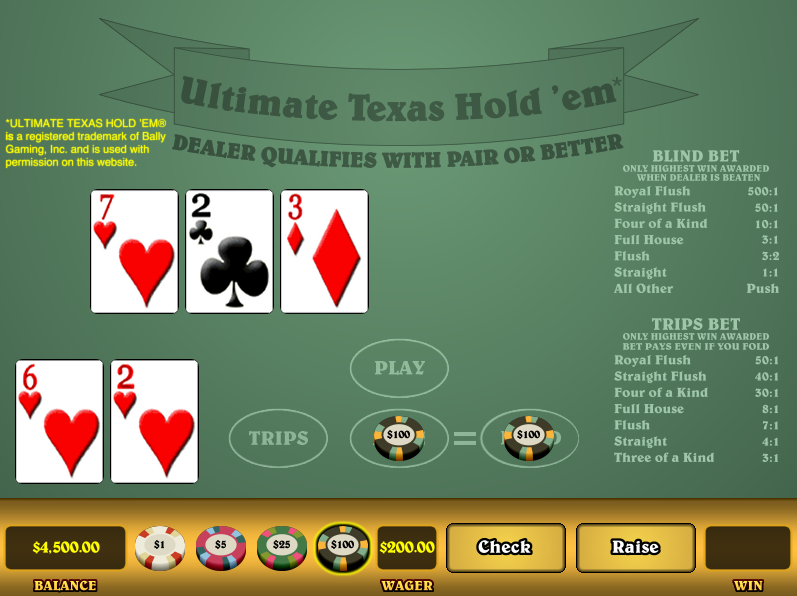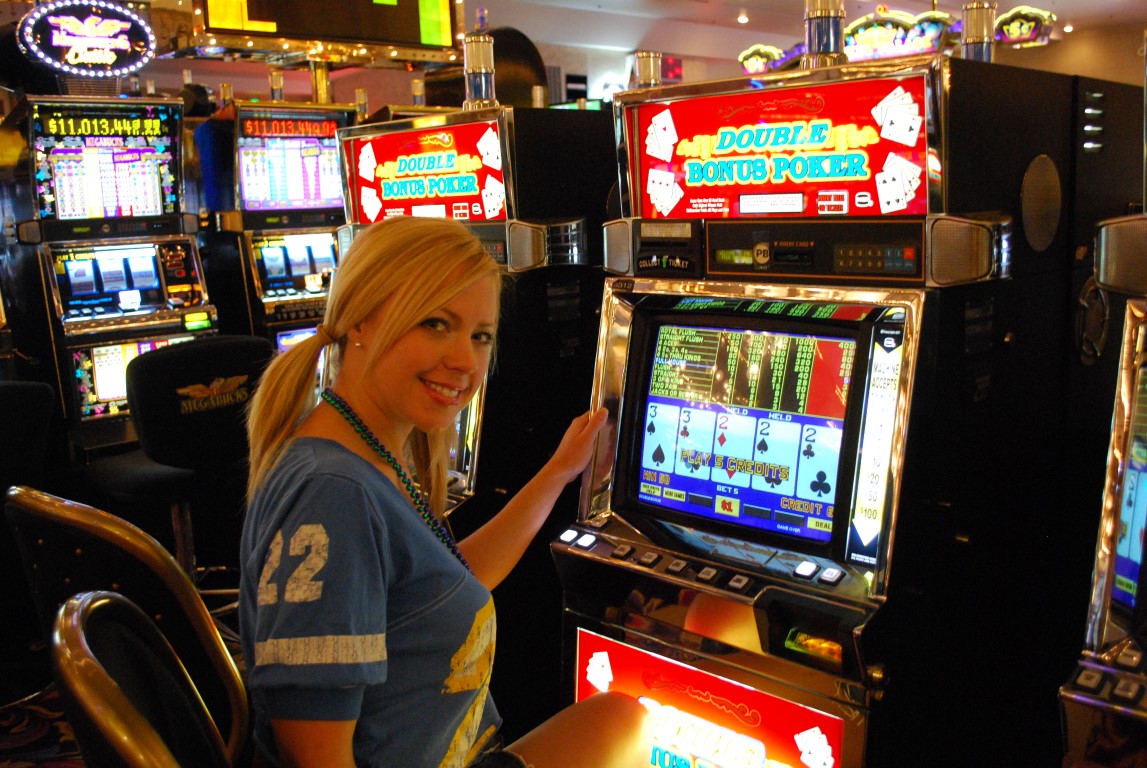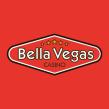On this page
Top 13 Best Bets in the Casino
On this page
Introduction
The following list shows what I consider to be the 13 best bets in the casino. This started as a top ten list, but then I realized I forgot about three games. In my forum there was a lengthy debate about how a games value should be measured. The way I am measuring how good a bet is the ratio of average money lost to average money bet. In this scenario, the lower the better. This ratio is what I call the element of risk. It should not be confused with the house edge, which does not factor in supplemental wagers, like raising in poker-based games, in the average bet.
A good example of a game where the measurement matters is Mississippi Stud. The house edge, as defined as the ratio of money lost to the initial wager, is 2.64%. However, the average amount bet raising is 71.4% the amount of the Ante bet. That additional amount bet should be factored into the value of the game. Thus, the element of risk in Mississippi Stud is the expected money lost of 0.0264 units to the total amount bet of 1.714 units, which comes to 1.54%.
Some on my forum argued I should factor in the speed of a game, usually measured in hands per hour. This is a good point, but game speed varies. I do indicate the hands per hour of each game as well as the standard deviation. Others argued for games with a low volatility. Again, a good point, but some players like volatile games. If you enjoy a "dribbler," meaning a slow game with low volatility, you should mentally factor in games with a slow speed and low standard deviation. If you want something more exciting, then look for a game with a high speed and standard deviation.
 Ohio Recommended Online Casinos
View All
Ohio Recommended Online Casinos
View All
Other factors that went into the list are the rules of the games, which often vary. I tried to go with the best available rules here in Las Vegas. In particular, I tend to use the MGM-Mirage properties, which generally offer more favorable games rules. Some of these rules are available only at high limits, which I shall comment on when that is the case. I also tried to stick to games that are easily found. This was sometimes a judgment call. I expect others may disagree about what games and rules I consider to be easily available, which is fine. Please take my choices with a grain of salt.
This list assumes the player is playing optimal to near optimal strategy. Most players do not know what they are doing at the tables and will pay a price for errors in games of skill. If you fly by the seat of your pants in decisions of strategy, then I would add about 3% to the element of risk. I also assume the player is playing only the base game and avoiding all side bets and any other bets that are not mentioned. Mixing in other bets will increase the casino's edge.
With the cavaets out of the way, I present my 13 best bets in the casino, from lowest to highest.
13. High Card Flush
- House edge: 2.64%
- Element of risk: 1.54%
- Standard deviation: 1.63
- Hands per hour: Apx. 50
High Card Flush is a simple flush-based poker game that has risen in popularity in recent years. At the time of this writing, in April 2020, my table games survey showed 11 placements around Las Vegas.
The object is to have a longer run of cards in the same suit than the dealer. Like Three Card Poker, there is just a single raise or fold decision to be made. The basic strategy is simple, raise with a three-card 10-8-6 or higher.
More information:
12. Mississippi Stud
- House edge: 2.64%
- Element of risk: 1.54%
- Standard deviation: 9.84
- Hands per hour: Apx. 50
Mississippi Stud is one of the most successful poker variants in the last decade. The object is to get a high-ranking five-card poker hand. There is no dealer hand to beat. As the cards are revealed, the player must decide to raise small, raise big, or fold. The strategy can easily be fit on an index card.
At the time of this writing, it has 13 placements in Las Vegas. Beware that with a standard deviation of 9.84, it can be a feast or famine kind of game.
More information:
11. Roulette
- House edge: 1.35%
- Element of risk: 1.35%
- Standard deviation: 0.99
- Spins per hour: 35
Roulette makes the list but only under the liberal French rules and then on even money bets only. Here is a quick recap of the various forms of roulette rules, from worst to best:
- Triple-zero — House edge of 7.89% on every bet.
- Double-zero — House edge of 5.26% on most bets (the exception being 7.89% on the “first five" bet)
- Atlantic City Rules — Same as double-zero rules, except even money bets lose half only if the ball lands in either zero. The house edge is the same as double-zero rules, except on even money bets it drops to 2.64%.
- Single-zero — This is something referred to as European rules. The house edge on every bet is 2.70%.
- French Rules — Same as single-zero rules, except even money bets lose half only if the ball lands in zero. The house edge is the same, except it drops to 1.35% on even money bets.
Only even money bets in French roulette make my top ten. Unfortunately, for most, this game can be found at high-limit tables only. Many MGM-Mirage properties have tables with the French rules starting at a $50 minimum.
For more information, please see my roulette page.
Online Roulette Casino Bonuses View All
Bonus Code
Same for Poker, American Roulette
- 60 times on Slots
- 240 times on Baccarat
- 600 times on Video Poker
- 1200 times on Blackjack
Bonus Code
Same for Poker
- 60 times on Slots
- 240 times on Baccarat
- 600 times on Video Poker
- 1200 times on Craps, Blackjack
Bonus Code
Same for American Roulette
- 25 times on Slots
- 125 times on Poker
- 250 times on Classic Blackjack, Video Poker, Blackjack
10. Crazy 4 Poker
- House edge: 3.42%
- Element of risk: 1.09%
- Standard deviation: 3.13
- Hands per hour: Apx. 50
Crazy 4 Poker is another popular poker variant. At the time of this writing, there were 25 installments in Las Vegas. The object is to have a better four-card poker hand than the dealer. There is only one decision to fold, make a small raise, or (in some cases) make a big raise. The strategy is quite simple:
- Make large raise with pair of aces or better.
- Otherwise, make small raise with K-Q-8-4 or better.
- Otherwise, fold.
More information:
9. Baccarat
- House edge: 1.06%
- Element of risk: 1.06%
- Standard deviation: 0.93
- Hands per hour: Apx. 70
Baccarat is a very simple game with a house edge as low as 1.06%, assuming the player bets on the Banker only. If you must make other bets, here is the house edge of all the major bets, from best to worst:
- Banker: 1.06%
- Player: 1.24%
- Player pair, banker pair: 10.36%
- Tie: 14.36%
The number of times I've seen anyone follow the strategy of betting the Banker only is zero. Rather, baccarat players are a superstitious bunch who bounce between Player and Banker in a futile attempt to predict trends. If you stick to betting the Banker only, your house edge will be somewhere between 1.06% and 1.24%. Just don't bet on anything else! The enormous house edges on the tie, pairs, and all side bets will turn baccarat into a sucker game if you bet them.
The figures above are based on conventional baccarat with a 5% commission on winning banker bets. There are a couple other versions that pay even money on the banker bet most of the time. The drawing rules are the same, so the odds on all the other bets are the same as conventional baccarat. Here is summary of them:
- EZ Baccarat — A winning Banker hand with three-card total of 7 is a push. The house edge on the Banker is surprisingly less at 1.02%.
- Nepal Baccarat — A winning Banker hand with any total of 6 pays 1 to 2. The house edge on the Banker is 1.46%
More information:
Online Baccarat Casino Bonuses View All
Bonus Code
- 60 times on Slots
- 120 times on Poker, American Roulette, Roulette
- 600 times on Video Poker
- 1200 times on Blackjack
Bonus Code
- 60 times on Slots
- 120 times on Poker, Roulette
- 600 times on Video Poker
- 1200 times on Craps, Blackjack
8. Free Bet Blackjack
- House edge: 1.04%
- Element of risk: Apx. 0.98%
- Standard deviation: Apx. 1.07
- Hands per hour: Apx. 70
Free Bet Blackjack is a blackjack variant that allows the player to make most double and split bets for free. In other words, the player freerolls on additional money bet after the initial wager. The catch is that if the dealer draws to 22, then any bets still standing will push.
This game calls for a different strategy than regular blackjack. Following this strategy, that calls for more hitting, will sometimes cause tension at the table, from ignorant players who follow conventional blackjack strategy. However, following this strategy results in a fun game where the player will take the free double or split on anything.
Although it is a fairly recent game, it has exploded in popularity in the last couple years to 15 placements at the time of this writing.
For more information, please see my page on Free Bet Blackjack.
7. Blackjack Switch
- House edge: 0.58%
- Element of risk: Apx. 0.52%
- Standard deviation: Apx. 1.14
- Rounds per hour: Apx. 70
Blackjack Switch is a blackjack variant that allows the player to switch cards between two hands played at the same time. It employs the same Push 22 rule as Free Bet Blackjack, resulting in a modified strategy, which may annoy players incorrectly using conventional blackjack strategy. There is also a switching strategy that is rather complicated.
At the time of this writing, Las Vegas has 18 Blackjack Switch placements.
For more information, please see my page on Blackjack Switch.
Online Blackjack Casino Bonuses View All
Bonus Code
Same for Video Poker, Blackjack
- 40 times on Slots, Dragon Tiger
Bonus Code
Same for Blackjack, Video Poker
- 40 times on Parlor Games, Slots, Dragon Tiger
Bonus Code
Same for Blackjack, Video Poker
- 40 times on Parlor Games, Slots, Poker
6. Texas Hold 'Em Bonus
Texas Hold 'Em Bonus is yet another poker variant where the object is to have a better hand in Texas Hold 'Em than the dealer. This game offers three chances to raise your initial bet, so the final wager is often a large multiple of the initial wager.
The strategy is easy to explain for the initial two-card hand, as there are 169 only possible classes of them. However, after that the strategy is largely unknown, including by me. Beyond Counting Exhibit CAA (pages 367-371) by James Grosjean presents a long, complicated, and still incomplete strategy after the flop.
- House edge: 2.04%
- Element of risk: 0.534%
- Standard deviation: 3.51
- Hands per hour: Apx. 50
For more information, please see my page on Texas Hold 'em Bonus.
5. Ultimate Texas Hold 'Em
- House edge: 2.19%
- Element of risk: 0.526%
- Standard deviation: 4.94
- Hands per hour: Apx. 50
Ultimate Texas Hold 'Em offers a great value if you know how to play it properly. It is also one of my personal favorite games. Having played it for hundreds of hours, I can say that the vast majority of players butcher the strategy and consequently lose much more than they should.
The goal of the game is to beat the dealer. Where strategy comes in is opportunities to raise your Ante bet. The earlier you raise, the more you're allowed to raise. All things considered, if you play properly you can expect to lose only one half of one percent of everything you bet. Novelty games like this also tend to get comped well. However, I would not play unless you know what you're doing.
More information:
4. Video Poker
- House edge: 0.54%
- Element of risk: 0.54%
- Standard deviation: 4.42
- Hands per hour: Apx. 500
The house edge from video poker can range anywhere from 5% to slightly negative (meaning a player advantage), depending on the game and pay table. As a rule of thumb, the more difficult a game is to play well the better the odds are. Video poker is an illustrated example of that. The skilled player will know the return for all the common games and pay tables as well as how to play all 2.6 million possible hands correctly. The player who plops down at whatever machine seems lucky and then uses his best judgment is going to give his money away quickly (but not as quickly as on a reeled slot machine).
For purposes of this article, I am basing the house edge on 9-6 Jacks or Better. The MGM-Mirage properties will usually have this game in the high limit slot rooms. With correct strategy, the return to player on that game is 99.54%, which equates to a house edge of 0.46%.
There are some better games out there than 9-6 Jacks or Better, but most are worse. If you play correctly and target the casinos with good games, you can get more from the casinos in comps and mailers than you give them. However, video poker isn't easy. If it were, everybody would be playing it and the pay tables would get worse.
I have an enormous amount of resources on video poker, which I recommend you read for more information.
More information:
- Rules, strategy, and analysis
- Jacks or better demo game (there are many more)
Online Video Poker Casino Bonuses View All
Bonus Code
Same for Classic Blackjack, Blackjack
- 40 times on Parlor Games, Slots, Dragon Tiger
Bonus Code
Same for Classic Blackjack, Blackjack
- 40 times on Parlor Games, Slots, Poker
Bonus Code
- 60 times on Slots
- 120 times on Roulette, American Roulette, Poker
- 240 times on Baccarat
- 1200 times on Blackjack
3. Spanish 21
- House edge: 0.42%
- Element of risk: Apx. 0.38%
- Standard deviation: Apx 1.14
- Hands per hour: Apx. 70
Spanish 21 is an early variant of blackjack that had many placements in the 90's. While the number in Las Vegas today I believe is zero, the game is still popular in California and Washington. The thrust of the game is there are many rules that cut the player's way, like double or surrender with any number of cards, 21 points and blackjacks are an automatic winner, 6-7-8 and 7-7-7 bonuses, and sometimes re-doubling is allowed.
The house edge quoted of 0.42% is based on re-doubling being allowed. About half the tables out there allow this. Otherwise, the house edge goes up to 0.76%.
More information:
2. Craps
- House edge: 1.41%
- Element of risk: 0.27%
- Standard deviation: 4.91
- Hands per hour: Apx. 48 rolls per hour. On average, it takes 3.38 rolls to resolve a pass line bet. Thus, about 14.22 pass line bets resolved per hour.
Craps offers an outstanding value if the player can stay away from the many sucker bets on the table, which lure in a majority of players. However, the patient player with a strong backbone can get the house edge down to a very low 0.27% by betting the don't pass and/or don't come and taking the maximum allowed odds. This 0.27% figure assumes 3-4-5x odds are allowed, which is not hard to find in Las Vegas.
For those players who don't like to play the “dark side," the house edge betting the pass and come with 3-4-5x odds is only 0.1% higher at 0.37%. Don't worry, if I seeing you doing that at the table, you won't get the Wizard's finger wagging of shame, but maybe a slight raising of the eyebrow. If you want that contact high at the table, betting with the shooter is the way to go and probably worth the additional 0.1%, unless you enjoy a sense of schadenfreude in seeing other players lose.
- Rules, strategy, and analysis
- Craps demo game
- Demo game video
- Video with Angela (part one of five)
Online Craps Casino Bonuses View All
Bonus Code
Same for Blackjack
- 60 times on Slots
- 120 times on Poker, Roulette
- 240 times on Baccarat
- 600 times on Video Poker
1. Blackjack
- House edge: 0.19%
- Element of risk: 0.17%
- Standard deviation: 1.14
- Hands per hour: Apx. 70
Much like video poker, the house edge in blackjack can range all over the place, depending on the rules. The house edge of 0.19% quoted above is based on a two-deck game, where the dealer stands on a soft 17, and double after a split is allowed. These rules can be found the Mirage, Aria, Bellagio, MGM, and Treasure Island, usually at a $50 to $100 minimum. If that is not available, the “liberal Vegas Strip" rules of six decks, dealer stands on soft 17, double after split allowed, surrender allowed, re-splitting aces allowed is easier to find and has a house edge only a little higher at 0.26%. Beware that the house edge can get as high as 2% if a blackjack pays 6 to 5, which is slowly becoming the norm.
Besides playing good rules it is also important to play correct basic strategy. I have found most players think they know basic strategy but fail miserably when I test them. Here is a quick quiz to test your blackjack strategy:
Assuming the liberal strip rules above, what is the correct play with:
- Ace-7 against a 9?
- Ace-2 against a 5?
- 4-4 against a 6?
- Total of 16 against a 10?
- Total of 12 against a 2?
- 9-9 against a 9?
- 8-8 against a 10?
- Total of 9 against a 3?
- 6-6 against a 4?
- Do you accept "even money" with a blackjack against a dealer ace?
Please see this post at Wizard of Vegas for the answers.
Like video poker, blackjack rewards skill and will punish the player who doesn't have it.
Online Blackjack Casino Bonuses View All
Bonus Code
Same for Video Poker, Blackjack
- 40 times on Slots, Dragon Tiger
Bonus Code
Same for Blackjack, Video Poker
- 40 times on Parlor Games, Slots, Dragon Tiger
Bonus Code
Same for Blackjack, Video Poker
- 40 times on Parlor Games, Slots, Poker
Honorable Mentions
 |
 |
 |
I seriously considered adding pai gow (tiles) to the list. That game offers a house edge of 1.98% when the dealer banks and 0.08% when the player does. Assuming the player can bank every other hand, the average house edge is 1.03%, which is definitely top 10. However, other players may impede your ability to alternate banking.
A case could be made for betting underdogs in the NFL and MLB. In particular, against the spread in the NFL and against a 10-cent money line in MLB. Based on my on historical data, such a strategy has a house edge of 0.57% in the NFL and a player advantage of 0.06% in MLB. However, take these figures with a grain of salt due to a limited sample size (3,220 games in the NFL and 21,569 in MLB).
Finally, DJ Wild has a very respectably low element of risk at 1.02%, making it a better bet than many of the games on this list. However, it has only several placements that I'm aware of, so doesn't meet the condition of being easily available to play.
Conclusion
Although I scrape the surface only of these games, I hope this article will help you choose what to play in the casinos. Please remember that the order in any given casino will be shuffled around because rules for many of these games vary significantly. As stated at the beginning, you must make the right bets and in games of skill, make mathematically correct decisions to obtain the odds quoted in this article. I'd like to finish with some closing words of advice that apply to all games:
- Avoid all side bets (the house edge can get as high as 25%).
- In games of skill, do your homework before you play.
- Bet in moderation.
- Do not trust in betting systems.
- Quit playing when you're no longer having fun.

